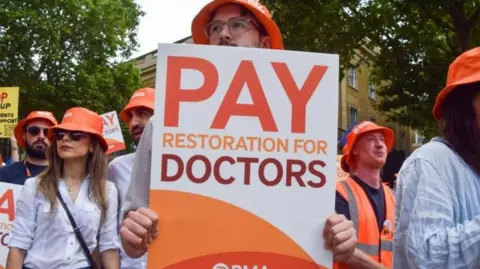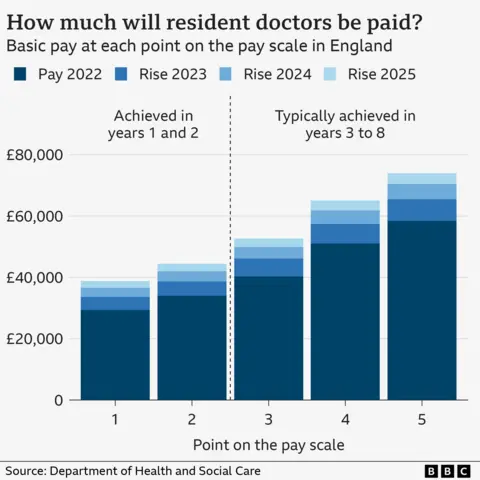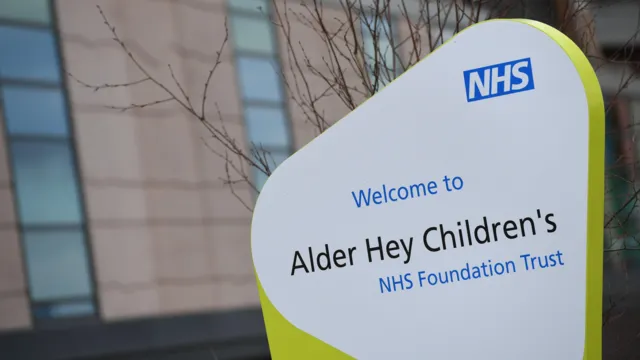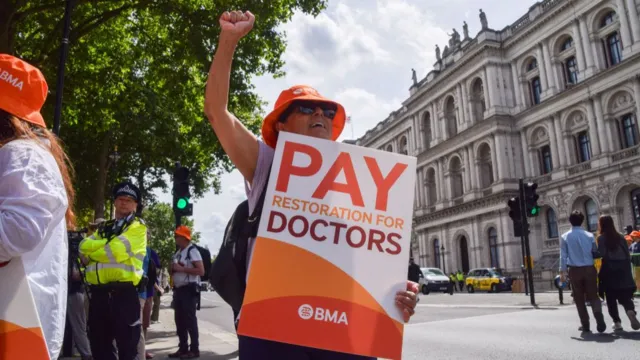NHS Faces Five-Day Strike as Resident Doctors Walk Out, Seeking to Minimize Disruption
NHS Grapples with Resident Doctors’ Five-Day Strike
The National Health Service (NHS) is preparing for a five-day strike by resident doctors across England, starting Friday, July 25, 2025. Health Secretary Wes Streeting has vowed to minimize disruption to patient care, even as hospitals brace for potential cancellations and altered service levels. The industrial action is the latest development in an ongoing dispute over pay and working conditions, with the British Medical Association (BMA) spearheading the action.

The NHS faces a new challenge as it attempts to maintain non-urgent services throughout the strike, a shift from previous walkouts. This approach, while intended to lessen patient impact, could strain resources, especially as senior doctors cover for striking resident doctors. The BMA has voiced concerns that the current strategy risks overstretching healthcare professionals. Discussions between the government and the BMA broke down earlier in the week, primarily over non-pay issues, further escalating tensions.
Key Stakeholders Respond
Prime Minister Sir Keir Starmer urged resident doctors to reconsider the strike, highlighting the potential damage to the NHS. Streeting echoed these concerns, acknowledging the disruption while reiterating his commitment to mitigating its effects on patients. Key stakeholders are actively engaged, with efforts focused on ensuring that the public continues to access necessary medical attention.
Impact on Patient Care and Services
Patients are advised to attend scheduled appointments unless notified of a cancellation. GP surgeries, urgent care services, A&E departments, and NHS 111 will remain operational. The strike follows a breakdown in negotiations between the government and the BMA on Tuesday. These talks mainly focused on non-pay issues, such as exam fees and career advancement, since Streeting has previously stated that pay was not up for negotiation.

The BMA says that despite a 5.4% average pay rise this year, following a 22% increase over the previous two years, pay has fallen by a fifth since 2008 when considering inflation. Resident doctors in England now earn a basic salary of £38,831 in their first year, increasing to £44,439 in their second year. Salaries exceed £73,000 by the end of training. Furthermore, medics often work extra hours, including nights and weekends, which increases their earnings by over a quarter.
BMA resident doctor co-leaders Dr. Melissa Ryan and Dr. Ross Nieuwoudt emphasized that pay restoration is crucial for improving working conditions. They criticized Streeting for not preventing the strike. One example is the cancellation of a three-year-old girl’s lung surgery, as reported by Hassnain Shahid from Bradford. The BMA has warned that the new approach could create additional safety risks.
Saffron Cordery, deputy chief executive of NHS Providers, pointed out that hospitals would adhere to “rigorous safety guidelines” while striving to keep services running, but the lack of clarity regarding doctors’ attendance created additional complexities. About two-thirds of resident doctors are BMA members. Tory shadow health secretary Stuart Andrew believes that the strikes threaten to destabilize hospitals and expose patients to risk. Rory Deighton from the NHS Confederation has placed the responsibility for the strikes’ impact on the BMA.



Post Comment